FOR SAFE USE OF YOUR CAMERA
Care to be Taken During Handling
Contents
Composition of the Operating Manual
Checking the Contents of the Package
Names of Parts
Names of Operating Parts
Getting Started
Attaching the Strap
Powering the Camera
Charging the Battery
Installing the Battery
Using the AC Adapter (optional)
Installing the SD Memory Card
Recorded Pixels and Quality Level for Still Pictures
Recorded Pixels and Quality Level for Movies
Adjusting the LCD Monitor
Adjusting the Viewfinder
Turning the Camera On and Off
Playback Only Mode
Initial Settings
Setting the Display Language
Setting the Date and Time
Quick Start
Taking Still Pictures
Playing Back Still Pictures
Playing Back Images
Playing Back the Previous or Next Image
Rotating the Displayed Image
Common Operations
Understanding the Button Functions
Capture Mode
Playback Mode
Using the Menus
How to Use the Menus
Example of Menu Operation
Menu List
Taking Pictures
Taking Pictures
Selecting a Shooting Mode
Letting the Camera Set the Exposure (Program Mode)
Aperture Priority Shooting
Shutter Priority Shooting
Manual Shooting
Using Preset Function Settings (User Mode)
Selecting the Picture Mode According to the Shooting Scene (Picture Mode)
Using the Zoom
Setting the Exposure (EV Compensation)
Continuous Shooting (Continuous Shooting Mode)
Using the Self-Timer
Automatically Changing the Shooting Conditions (Auto Bracket)
Taking Pictures at Fixed Intervals (Interval Shooting)
Superimposing One Picture on Top of Another (Multiple Exposure Mode)
Using the Remote Control Unit (optional)
Taking Pictures with Digital Filters (Digital Filter Mode)
Taking Panorama Pictures (Panorama Assist)
Taking 3D Pictures (3D Image Mode)
Displaying Shooting Information in Capture Mode
Setting the Shooting Functions
Selecting the Focus Mode
Selecting the Flash Mode
Adjusting the Flash Intensity
Selecting the Recorded Pixels
Selecting the Quality Level
Adjusting the White Balance
Setting the Autofocus Conditions
Setting the Light Metering Range to Determine the Exposure (AE Metering)
Setting the Sensitivity
Setting the Instant Review Time (Instant Review)
Selecting the Image Tone
Setting the Image Sharpness (Sharpness)
Setting the Color Saturation (Saturation)
Setting the Image Contrast (Contrast)
Saving the Settings (Memory)
Taking Movies
Recording Movies
Selecting the Recorded Pixels for Movies
Adding a Color Effect to Movies (Color Mode)
Selecting the Frame Rate
Taking Time-lapse Movies
Playing Back and Deleting Images
Playing Back Still Pictures
Switching between Capture Mode and Playback Mode
Playing Back Still Pictures
Nine-Image Display and Folder Display
Zoom Display
Displaying Shooting Information in Playback Mode
Slideshow
Playing Back Movies
Playing Back Movies
Viewing Still Pictures and Movies on a TV
Deleting
Deleting Single Images and Sound Files
Deleting Selected Images and Sound Files (from Nine-Image Display)
Deleting All Images
Protecting Images and Sound Files from Deletion (Protect)
Editing and Printing Still Pictures
Editing Still Pictures
Changing the Image Size and Quality (Resize)
Trimming Images
Editing Pictures with Digital Filters
Setting the Printing Service (DPOF)
Printing Single Images
Printing All Images
Direct Printing Using PictBridge
Connecting the Camera to the Printer
Printing Single Images
Printing All Images
Printing Images Using the DPOF Settings
Disconnecting the Camera from the Printer
Recording and Playing Back Sound
Recording Sound (Voice Recording Mode)
Playing Back Sound
Adding a Voice Memo to Images
Recording a Voice Memo
Playing Back a Voice Memo
Settings
Camera Settings
Formatting an SD Memory Card
Changing the Date and Time
Changing the Sound Settings
Setting the World Time
Changing the Display Language
Changing the Image Folder Name
Changing the Start-up Screen
Customizing the Display Mode
Adjusting the Brightness of the LCD Monitor
Changing the Video Output Format
Changing the USB Connection Mode
Setting Sleep Timeout
Setting Auto Power Off
Resetting to Default Settings (Reset)
Registering Functions on the Fn Button
Setting the Alarm
Checking the Alarm
Setting the Alarm
Stopping the Alarm
Digital Exposure Metering Function
Digital Exposure Metering Function
Digital Exposure Metering Mode
Setting Up the Digital Exposure Metering Mode
Metering the Exposure
Using the Reflected Light Exposure Meter
Appendix
List of World Time Cities
Rec. Mode Menus for Each Operation Mode
Default Settings
Optional Accessories
Messages
Troubleshooting
Main Specifications
WARRANTY POLICY
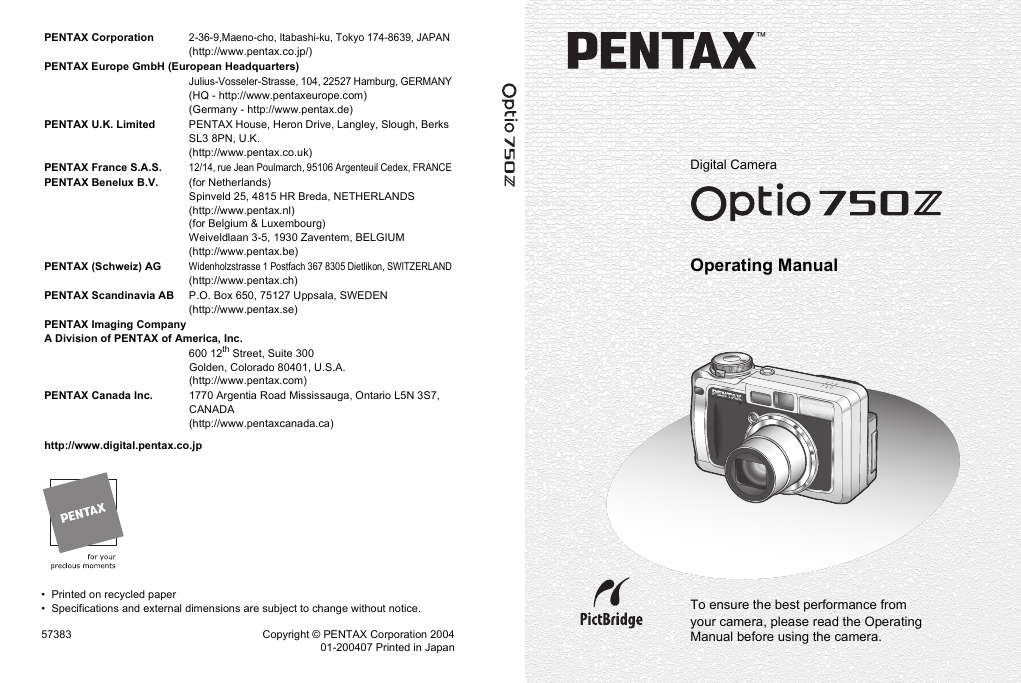
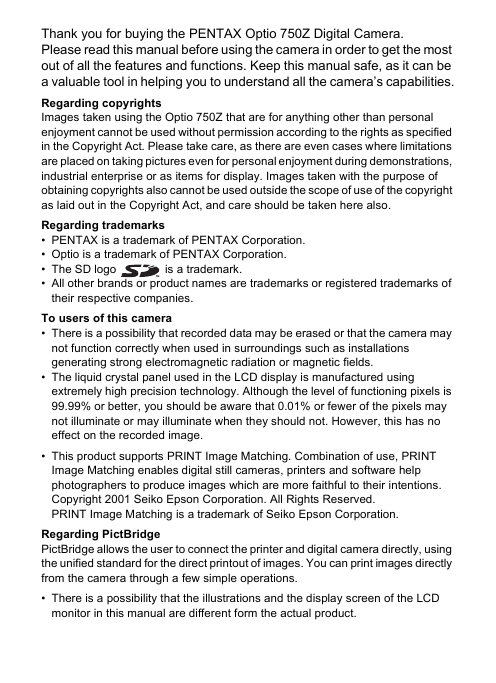
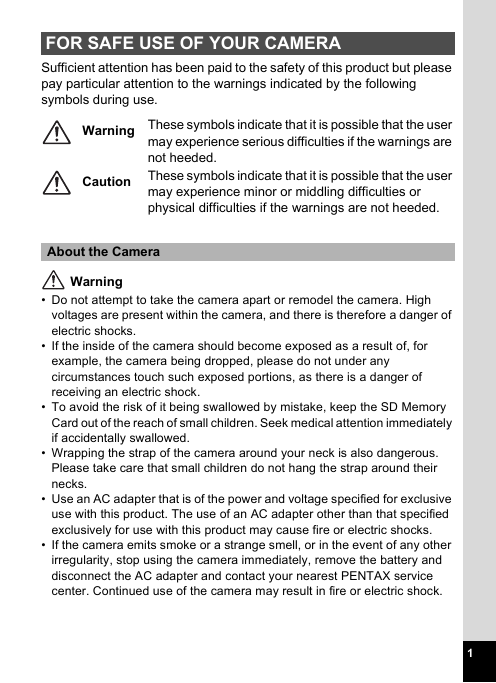


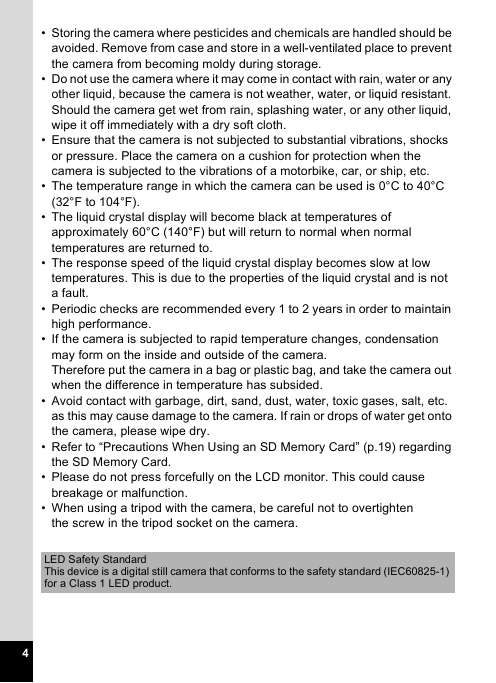

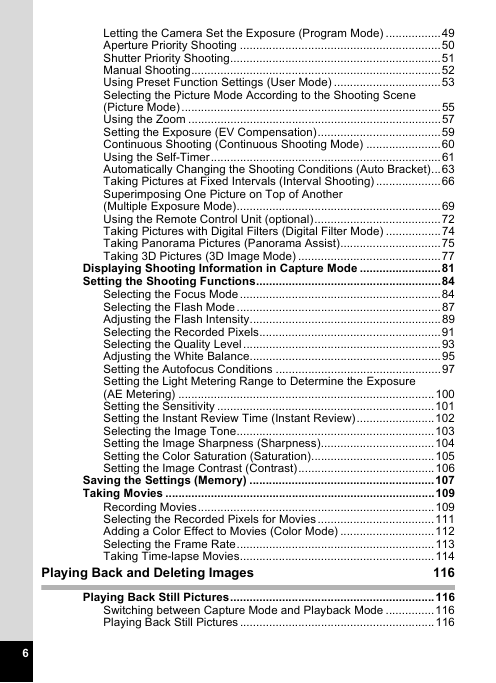








 2023年江西萍乡中考道德与法治真题及答案.doc
2023年江西萍乡中考道德与法治真题及答案.doc 2012年重庆南川中考生物真题及答案.doc
2012年重庆南川中考生物真题及答案.doc 2013年江西师范大学地理学综合及文艺理论基础考研真题.doc
2013年江西师范大学地理学综合及文艺理论基础考研真题.doc 2020年四川甘孜小升初语文真题及答案I卷.doc
2020年四川甘孜小升初语文真题及答案I卷.doc 2020年注册岩土工程师专业基础考试真题及答案.doc
2020年注册岩土工程师专业基础考试真题及答案.doc 2023-2024学年福建省厦门市九年级上学期数学月考试题及答案.doc
2023-2024学年福建省厦门市九年级上学期数学月考试题及答案.doc 2021-2022学年辽宁省沈阳市大东区九年级上学期语文期末试题及答案.doc
2021-2022学年辽宁省沈阳市大东区九年级上学期语文期末试题及答案.doc 2022-2023学年北京东城区初三第一学期物理期末试卷及答案.doc
2022-2023学年北京东城区初三第一学期物理期末试卷及答案.doc 2018上半年江西教师资格初中地理学科知识与教学能力真题及答案.doc
2018上半年江西教师资格初中地理学科知识与教学能力真题及答案.doc 2012年河北国家公务员申论考试真题及答案-省级.doc
2012年河北国家公务员申论考试真题及答案-省级.doc 2020-2021学年江苏省扬州市江都区邵樊片九年级上学期数学第一次质量检测试题及答案.doc
2020-2021学年江苏省扬州市江都区邵樊片九年级上学期数学第一次质量检测试题及答案.doc 2022下半年黑龙江教师资格证中学综合素质真题及答案.doc
2022下半年黑龙江教师资格证中学综合素质真题及答案.doc